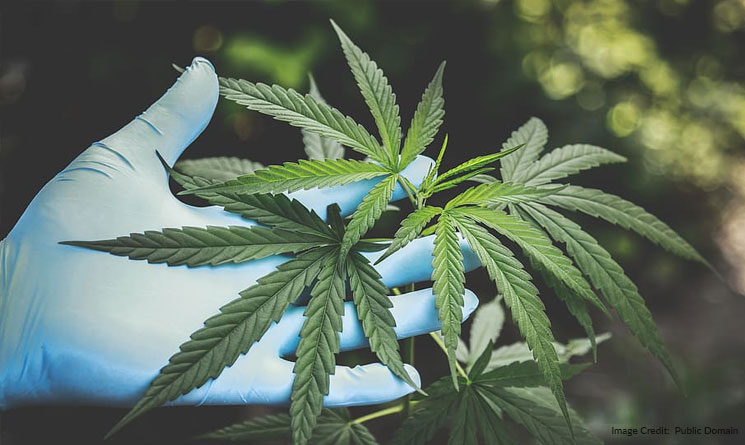Image Credit: Public Domain
The Tennessee Conservative [By Paula Gomes] –
With the “Free Marijuana For All Tennesseans Act” pulled from notice, enacting cannabis legislation has reached the end of its journey in the state House for the rest of this year.
House Bill 1968 (HB1968) would have decriminalized the use of cannabis under certain circumstances and created a regulatory framework for the cultivation, transport, researching, processing, and distribution of marijuana.
Tennessee lawmakers have been dragging their feet for years to decriminalize marijuana use and legalize it in Tennessee.
“The issue of marijuana has been contentious and divisive up here for years and years,” said Representative Bruce Griffey (R-Paris-District 75).
*** Click Here to Support Conservative Journalism in Tennessee. We can’t cover stories like this without your support!***
Tennessee risks getting left behind, and losing out on the revenue marijuana could provide, as surrounding states pass some form of cannabis legislation. According to the fiscal review of the bill, Tennessee could stand to gain approximately $65 to $130 million per year in revenue.
Bill sponsor Representative Bob Freeman (D-Nashville-District 56) said, “We are continuing to turn our back to the potential revenue for taxing this legally — people are already using it or else they wouldn’t be getting picked up and we’re criminalizing this, putting people in jail, for what is legal in other states.”
On Friday, the U.S. House of Representatives passed a bill to decriminalize cannabis on the federal level and allow for the expungement of some marijuana convictions. The Marijuana Opportunity Reinvestment and Expungement (MORE) Act would remove marijuana from the list of scheduled substances, so that growing, selling, or possessing the drug would no longer carry a criminal penalty.
Around 80% of Tennesseans now support medical marijuana or full legalization. The tide of public opinion is slowly turning.
Freeman said that people are now “feeling the effects of age, arthritis, dealing with cancer, and they want an alternative, they want an alternative to the opioids and the pharmacy groups that are paying for these medicines.”
Both the Tennessee Department of Agriculture and the Tennessee Department of Health who would have been instructed to set up the operation of any new law opposed the bill along with Governor Bill Lee’s Office and the Tennessee Department of Safety.
Tennessee cannabis advocate Cameron Shipman had this to say, “Tennessee lawmakers should not only revisit HB1968 for consideration [next year], but they should pass it. Cannabis is the least harmful drug known to man, it has no acute toxicity. It has multiple medicinal and therapeutic benefits, which the Federal government has acknowledged (see U.S. patent 6630507) while maintaining its listing as a schedule 1 controlled substance,” said Tennessee cannabis advocate Cameron Shipman. “Citizens are denied the right to cultivate a plant that could greatly improve their quality of life, cost them so little, and provide an alternative to the dangerous and expensive medications on the market. This right must be restored. Today, the only real danger cannabis poses to Tennesseans is the risk of getting caught with it.”
About the Author: Paula Gomes is a Tennessee resident and reporter for The Tennessee Conservative. You can reach Paula at paula@tennesseeconservativenews.com.





2 Responses
I would like to know where the information is coming from regarding the increase of tax money that would greatly benefit Tennessee. This is absolutely and blatantly false. I worked for the Colorado Marijuana Enforcement Division (MED) as a Compliance Investigator and know for a fact that for every $1 of tax money received by the state, $4.5 cost the state because of increased emergency room visits, driver accidents, crime, black market, youth usage, suicide, etc. This comes from Colorado Dept of Revenue of which the MED is under. I saw this because of being behind the scenes. Also, the MORE bill will not pass the U.S. Senate because of bipartisan opposition. Biden’s new 2023 budget basically rejects marijuana legalization. It does not extend any protection to legalized states and federal resources can still be used to enforce marijuana laws. The budget increases the monies for drug prevention 37% from the 2022 amount. 97% of the Tennesseans across Tennessee that I have spoken to do not want legal marijuana period.
I think it doesn’t pass here because someone is getting paid off and not because people don’t want it. Matter of fact, there’s a lot of people that use it even though it’s illegal.